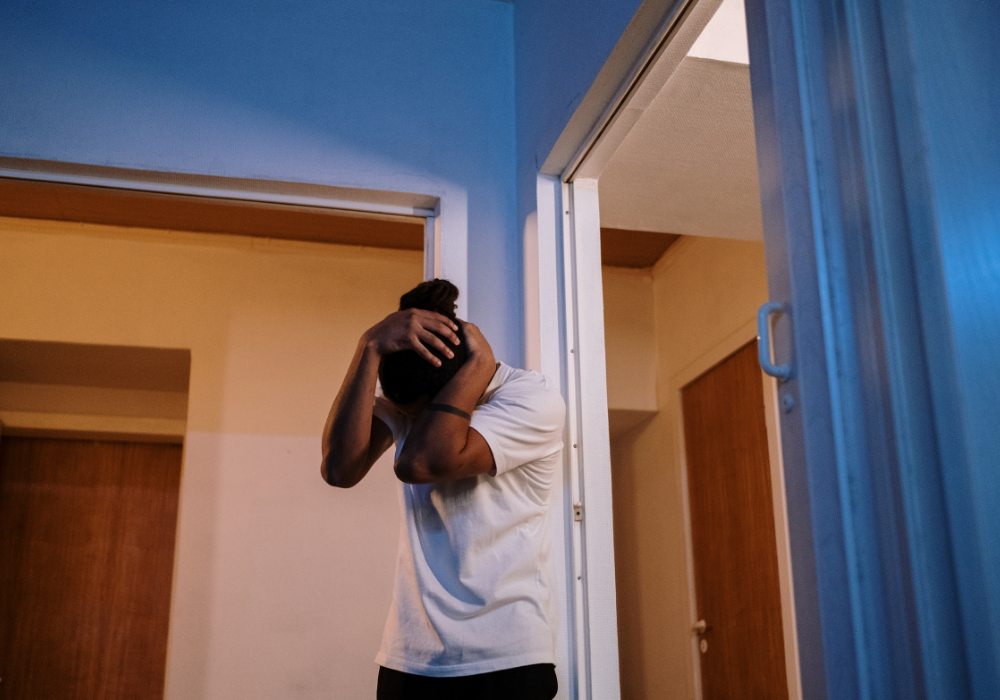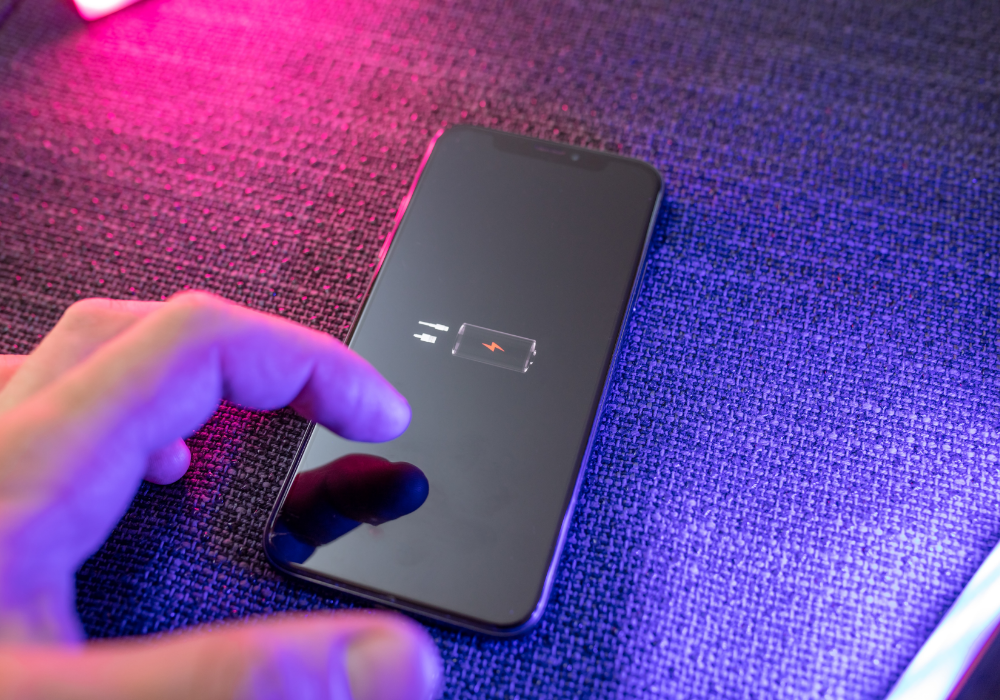The modern world is reshaping the human mind in ways we never saw coming.

Life today looks nothing like it did even a few decades ago. Technology, climate change, urbanization, and shifting social structures have created environments that humans were never biologically designed to navigate. As a result, new and unusual psychological conditions have emerged—some so strange they sound like science fiction. While mental health issues have always existed, many of these conditions are directly linked to the fast-paced, hyperconnected, and increasingly unpredictable world we now live in.
These conditions aren’t just rare curiosities; they reflect the deeper impact of societal and environmental shifts on the brain. From disorders triggered by digital overstimulation to psychological reactions caused by climate anxiety, these 11 conditions highlight how the modern world is rewiring human psychology in bizarre and unexpected ways.
1. When life feels fake, your brain might be stuck in a glitch.

Some people wake up one day and suddenly feel detached from their bodies, as if they’re floating through life like an observer rather than an active participant. Depersonalization disorder creates a sense of emotional numbness, making reality feel distant or artificial. Some sufferers describe it as living in a dream, where nothing around them seems quite real.
Episodes can last for minutes, weeks, or even months. Extreme stress and trauma are linked to this unsettling condition. A recent study led by Anna Ciaunica in Scientific Reports found that increased use of digital media-based activities and online social meetings correlated with higher feelings of depersonalization.
In a world where people spend hours in virtual spaces, scrolling through endless content, or engaging with AI, the lines between real and unreal are blurring. As technology advances, depersonalization disorder is becoming more common, leaving many questioning whether they are truly present in their own lives.
2. Isolation is turning into a lifestyle—and it’s becoming a global crisis.

Social isolation has become more common worldwide, but in Japan, hikikomori takes it to an extreme. This condition involves people—often young adults—completely withdrawing from society, refusing to leave their homes for months or even years. They avoid work, school, and social interactions, often spending their days in a single room, absorbed in video games, the internet, or books.
The rise of hikikomori is linked to intense societal pressure, economic instability, and a fear of failure. A study led by psychiatrist Takahiro Kato and published in World Psychiatry estimates that approximately 1.2% of the Japanese population has experienced hikikomori, highlighting its prevalence. As remote work and online entertainment expand globally, similar cases are appearing in other countries, raising concerns that extreme social withdrawal may become a widespread psychological phenomenon in an increasingly digital world.
3. Climate anxiety is making people physically and emotionally exhausted.

The worsening effects of climate change aren’t just damaging the planet—they’re taking a toll on mental health. Climate anxiety is an overwhelming fear of environmental collapse, leading to chronic stress, depression, and feelings of helplessness. Unlike general anxiety, this condition is directly tied to real-world environmental threats, making it harder to dismiss.
Many sufferers experience insomnia, obsessive thoughts about their carbon footprint, or even guilt over everyday actions like driving or eating meat. Research conducted by Caroline Hickman for The Lancet Planetary Health found that nearly 60% of young people aged 16 to 25 feel deeply worried about climate change, with almost half saying it disrupts their daily lives.
Some avoid having children out of fear for the planet’s future. As climate disasters become more frequent, psychologists predict that climate anxiety will continue to rise, affecting younger generations the most.
4. Paris syndrome makes tourists physically ill when reality doesn’t match expectations.

Some travelers arrive in Paris expecting romance, elegance, and a dreamlike experience, only to be met with crowded streets, indifferent locals, and a city that feels far from their fantasy. This disconnect can trigger Paris syndrome, a psychological condition where extreme disappointment manifests physically, causing dizziness, nausea, rapid heartbeat, and even hallucinations.
The shock of unmet expectations can be so overwhelming that some travelers require medical attention. While Paris is the most well-known trigger, similar experiences have been reported in other overhyped destinations. It’s a striking example of how powerful our expectations can be—and how reality doesn’t always cooperate.
5. Snapchat dysmorphia is driving people to seek plastic surgery to look like their own filters.

Social media filters can smooth skin, slim faces, and enhance features, but for some, the difference between their filtered and real appearance becomes unbearable. Snapchat dysmorphia is a condition where people develop an obsession with looking like their digitally altered selves, leading to depression, self-esteem issues, and even plastic surgery requests to match their edited images.
In contrast to traditional body dysmorphia, which fixates on perceived flaws, this condition is fueled by the constant exposure to unrealistic digital enhancements. Surgeons report an increase in patients asking for cosmetic procedures that mimic filters, highlighting the profound effect social media has on self-image and mental health.
6. Foreign accent syndrome causes people to wake up speaking in a different accent.

After a head injury, stroke, or severe migraine, some people develop foreign accent syndrome, a rare condition that causes them to suddenly speak with an accent different from their native one. The speech pattern change is unintentional and often distressing, as sufferers may struggle with identity issues or feel disconnected from their previous way of speaking.
Neurologists believe the condition is caused by damage to the parts of the brain responsible for language and motor control. While it sounds like something out of a movie, real cases have been documented where people who have never traveled abroad suddenly speak with accents from countries they’ve never visited.
7. Watching your hometown disappear is now a diagnosable condition.

Seeing once-familiar landscapes disappear under concrete, swallowed by rising seas, or scorched by wildfires isn’t just heartbreaking—it can trigger a deep psychological response known as solastalgia. This condition describes the distress of witnessing environmental destruction firsthand, leaving people feeling powerless, anxious, and disconnected from their surroundings.
The emotional toll can be severe, leading to depression, insomnia, and a lingering sense of grief. Farmers watching their land dry up, coastal residents losing ground to erosion, and indigenous communities seeing their ecosystems vanish are among the most affected.
Even without physically moving, people can feel displaced in their own homes. As climate change continues reshaping landscapes, solastalgia is becoming more widespread, making environmental grief an urgent mental health issue.
8. If you panic when your phone dies, you’re not alone.

Forgetting a phone at home or seeing the battery hit 1% might seem like a minor inconvenience, but for some, it triggers full-blown panic. Nomophobia, short for “no mobile phone phobia,” is an increasing psychological condition where people feel anxious, restless, or even physically ill when separated from their phones.
Many experience symptoms like sweating, rapid heartbeat, or obsessive phone-checking behaviors, even when there’s no notification. The brain has become so accustomed to constant stimulation that being disconnected can feel like losing a lifeline. With smartphones now serving as social hubs, workstations, and sources of entertainment, the fear of being without one isn’t just about missing a call—it’s about losing access to an entire digital world.
9. Some travelers leave Jerusalem convinced they are biblical figures.

A trip to a holy city shouldn’t lead to psychiatric hospitalization, but for some, that’s exactly what happens. Jerusalem syndrome is a rare psychological condition where tourists visiting the city develop sudden religious delusions, believing they are prophets or biblical figures. Even people with no prior history of mental illness have experienced overwhelming hallucinations, compulsive preaching, and a complete detachment from reality.
The exact cause remains unclear, but experts believe the intense spiritual energy of Jerusalem, combined with deep personal beliefs, can trigger psychotic episodes in vulnerable individuals. Some cases resolve once the person leaves the city, but others require medical intervention. Similar syndromes have been reported in Mecca, Rome, and other sacred locations, raising questions about how certain places can profoundly affect the human psyche.
10. Your brain is so addicted to notifications that it invents them.

Ever thought your phone vibrated in your pocket, only to check and realize it didn’t? That’s phantom vibration syndrome, a psychological phenomenon where the brain misinterprets sensory input, making people believe they’re receiving calls or messages that don’t exist.
This happens because the brain, conditioned to expect constant digital interaction, starts detecting false signals. The condition is harmless but highlights how deeply technology has rewired human perception.
Some researchers link it to smartphone-induced anxiety, with people unknowingly staying in a hyper-alert state, always anticipating the next notification. As digital dependency increases, more people are experiencing phantom alerts, proving that the brain now treats phone interactions as essential as basic survival instincts.
11. Too much beauty can send you into a meltdown.

Art is meant to move people, but in rare cases, it overwhelms them completely. Stendhal syndrome is a psychological reaction to being surrounded by extreme beauty—whether in an art gallery, a historic site, or a breathtaking natural landscape. Some people become so emotionally overloaded that they experience dizziness, rapid heartbeat, or even hallucinations.
Museums in Florence and the Louvre have reported cases where visitors collapse or burst into tears, unable to handle the intensity of the artwork. Psychologists believe that when the brain is overloaded with awe and sensory stimulation, it can trigger a physical response. While most people simply enjoy beautiful sights, those with Stendhal syndrome become so overwhelmed that their minds and bodies struggle to cope.